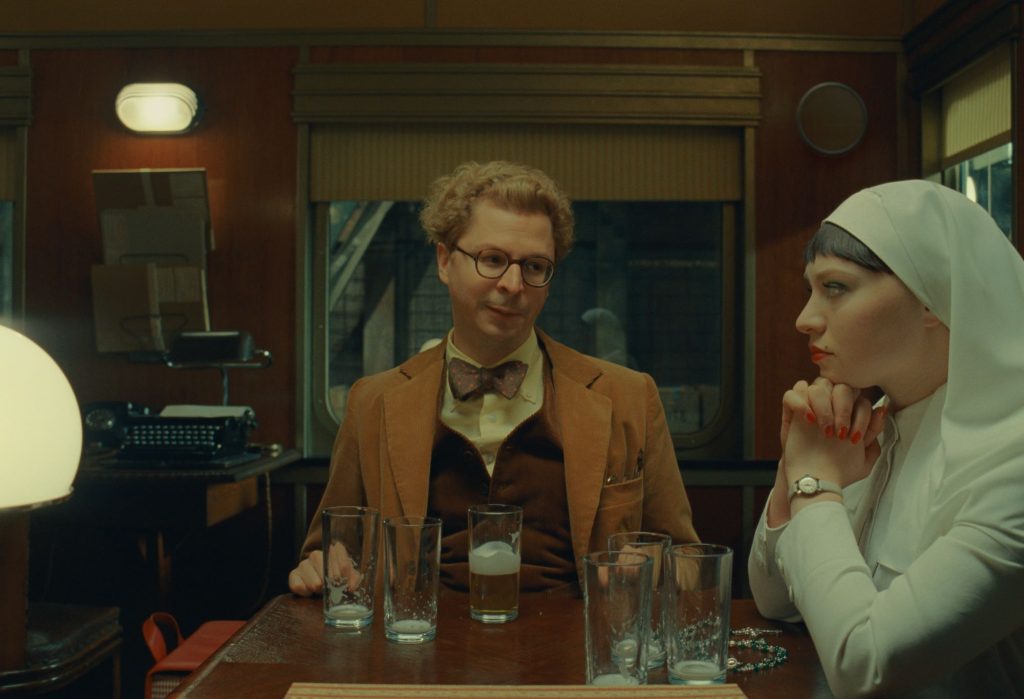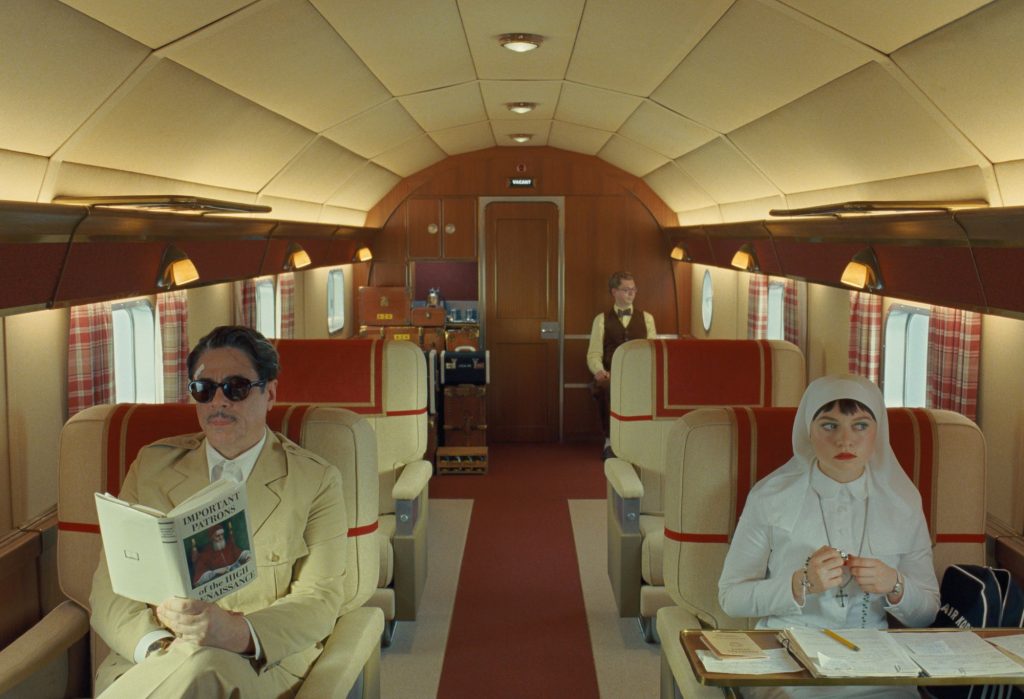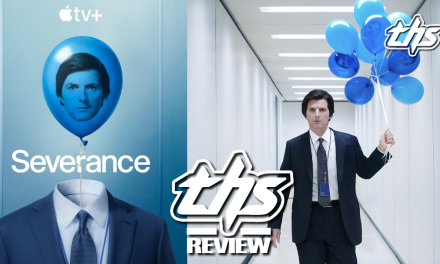Over the last few years, Wes Anderson has been anything but idle. In fact, he’s been a consistent presence. His latest offering, an existential tale about greed and the unchecked power of the billionaire class, takes a sharp turn from his last few offerings. The Phoenician Scheme stars Benecio del Toro as Zsa-zsa Korda, who, after an assassination attempt fails and he sees what could-or-could-not be God, begins to reconsider his legacy and what it means. It’s the Anderson whimsy at its most concentrated. Through brilliantly vibrant sets and the shot compositions fans know and love, this tale of legacy is an ephemeral world unfolds with grandeur.
Zsa-zsa attempts reconciliation with his estranged daughter, Liesl (a wonderfully dry Mia Threapleton), by offering her to be his sole heir. Liesl, who is about to take her vows to become a nun, obviously doesn’t want it, but after some back and forth she decides on what is deemed a “trial period.” If, at the end, she decides she’s okay with it, she’ll become the heir.
In the wake of his assassination attempt, however, Zsa-zsa discovers that his enemies are causing an inflation of construction materials across the country after fixing the price of a tool needed in the construction. In order to shrink the deficit, Zsa-zsa needs to convince various people to give him money. Do you really need to know all the details about this scheme? No. Do you need to understand it? Again, no, and that is truly lovely. More filmmakers need to eschew spelling things out so viewers can just go along with it and enjoy.

What really makes The Phoenician Scheme shine isn’t just its format—six stories inside a larger narrative as Zsa-zsa, Liesel, and entomologist Bjorn (Michael Cera) zip around in their private jet—but its stars. Cera, especially, feels like he’s just been waiting his entire career to be a part of a Wes Anderson film. He has the kind of silly, deadpan humor that works best alongside Anderson’s characteristic dialogue, and we can only hope he becomes part of Anderson’s rotating list of stars who appear in his projects.
Another fantastic new addition is Jeffrey Wright, who plays the American shipping magnate Marty. Wright has always been able to deftly walk the line between funny and serious, and his character’s rapid-fire dialogue is no challenge for him. After The Phoenician Scheme, it’s a wonder he hasn’t made an appearance in one of these films yet.
It would also be remiss to not discuss the duo of Tom Hanks (Leland) and Bryan Cranston (Reagan). Any time Cranston is able to step back into comedy is a good time, and his and Hanks’s performances are delightful and flawless. It’s a pairing that just somehow makes sense, but that could also only really work in a film like this.

For all its humor, though, The Phoenician Scheme really is a vehicle for morality and how, at the end of the day, we are all afraid of what comes next. Anderson does it in a way that sneaks up on you, even with the black-and-white interludes that appear periodically throughout the film. Life is fragile, he tells you, and sometimes you don’t appreciate that until you nearly die.
Though the story has been seen by some as simplistic, especially compared to recent entries like Asteroid City and The French Dispatch, sometimes simple is what you need. This isn’t meant to be a flashy tale like the aforementioned works–it’s an exploration and a meditation on life and family. Anderson digs into some potentially nihilistic subjects, but executes them tenderly.
The Phoenician Scheme is fun, and cute, and heartfelt. There are plenty of laughs and plenty of reflective moments. Sure, the story itself falls on the lighter end of the Anderson spectrum, but what matters is the heart—and the performances—are there.
The Phoenician Scheme premieres in theaters May 30.

![The Phoenician Scheme: The Wes Anderson Whimsy Is Out In Full Force [Review]](https://thsstaging.txend.com/wp-content/uploads/2025/05/project_20250521_1200139-01-1280x640.png)



